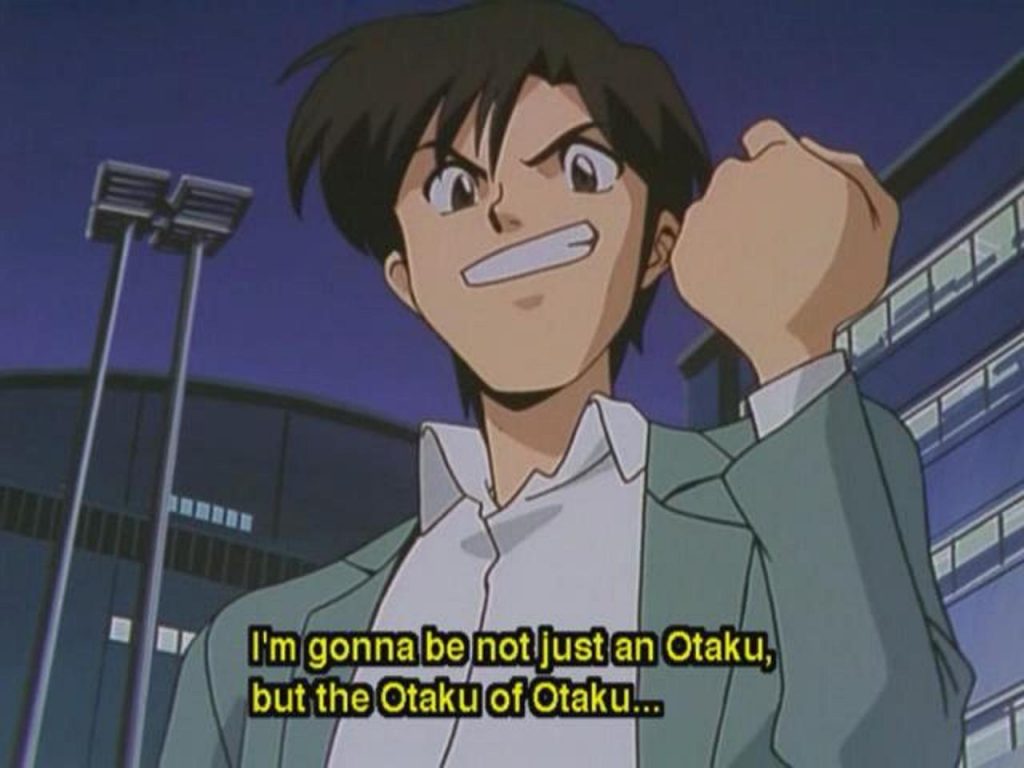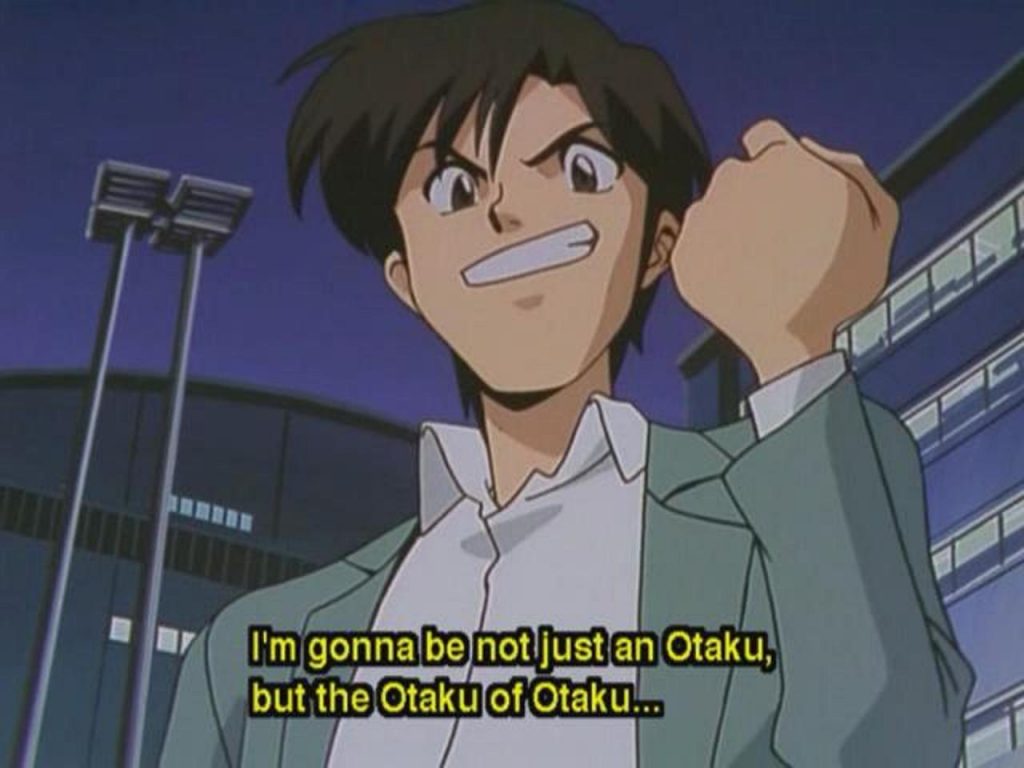(Cross-post from Iyashikei)


Ken Kubo, a normal guy with normal interests, suddenly has his life flipped, turned upside down after a chance encounter with an old friend flings him headfirst into the world of anime, special effects movies, sci-fi, and airsoft. Thus begins the story of Otaku no Video, Gainax’s 1991 semi-autobiographical OVA, celebrating and poking fun at the culture of otaku.
Kubo embodies the kind of otaku spirit that leads to the creation of doujinshi, garage kits, and studios like Gainax. Though he doesn’t begin the story as an otaku, his ambition takes him far, and brings the circle of otaku he’s dropped into with him.
While introducing him to his circle, Tanaka, Kubo’s friend who introduces him to otaku culture, proudly proclaims that his circle will take over the industry in ten years, due to their broad base of expertise. Fascinated, Kubo slowly integrates himself further and further with them, spending time away from home to work with them on their manga.

People with ambition and drive often alienate others without meaning to. Focusing hard on a project or a passion can have the added unintentional effect of pushing away people who aren’t with you on that journey. It’s a battle between progress and stagnation, where people comfortable with their lives as they are unconsciously attempt to hold back those who endeavour to move on to bigger and better things, out of fear of that person vanishing from their life.

This dynamic gets even worse when it’s between a parent and child, or between significant others. Kubo’s girlfriend, Yoshiko, ends up playing out this dynamic with Kubo. As he spends more time with Tanaka’s otaku circle, she grows more and more worried about him. He doesn’t return her calls since he’s away from home so often, he hasn’t been shaving, and he’s even putting on weight. Her desire for him to return to his normal life is out of genuine concern, but they grow apart with disastrous results, as Kubo eventually finds out she’d begun cheating on him.
Knocked down by Yoshiko’s betrayal, and knocked further down by fruitless job hunting, Kubo decides to go for broke, with Tanaka joining him. The two vow that, if otaku are going to be knocked down and ridiculed, then the only thing to do is go all-in.
What’s impressive and admirable is that, rather than dwelling on Yoshiko dumping him and desperately trying to win her back, he saddles up for the long haul and moves in the exact opposite direction. He’s a man with his own passions, his own drives, and his own ambitions, and not even Yoshiko can bring him to change that. Moreover, without her holding him back, he’s free to pursue those ambitions without feeling guilty of leaving anyone he cares about behind.

And pursue their ambitions they do. Three years later, the two start “Grand Prix,” a small business focused around making and selling garage kit figures (The name is a play on “GP,” or “General Products,” a store many big names in proto-Gainax ran that was in the same business). By doing things their way, they spark a garage kit boom, skyrocketing their business and taking over the industry four years before Tanaka originally boasted.
After a corporate shakeup and a hostile takeover, however, Kubo and Tanaka find themselves back where they started. Kubo’s ambition had gotten him in trouble again, his big dreams and expensive plans for the company creating an apprehension that gave a banker the opportunity to vote him out and fire Tanaka.
Back where they started, Kubo and Tanaka join forces once more. Their new plan: Anime. A repeat of their success with GP, Studio Giant X (A play on Gainax) takes the industry by storm, eventually buying out GP altogether.
Kubo is the kind of person that not just enters a circle, but imposes himself upon it. What I mean by that is that he becomes an entity within it, a rallying point that has the power to determine the group’s direction. Even though he came late to the party as far as becoming an otaku, his vision was the driving force that brought his and Tanaka’s circle from a small apartment full of videotapes and model kit boxes to a high-rise office building.
The story is the “artistic license” version of Gainax’s genesis and, as such, is farfetched, but the ideas are sound and the characters are relatable. Kubo’s refusal to live his life according to an established, comfortable narrative alienates his girlfriend, who resents him for moving forward without her, and his drive to move forward alienates his circle, who fear the risk involved in his ideas.
He doesn’t choose to stagnate or compromise, however. He chooses to move forward with the people who believe in him. He realizes that negativity will only hold him back, and that every time he’s knocked down, it’s just another chance to rise up and show everyone.
Give things your all, move forward, and the people who aren’t on-board with you can stay behind.

